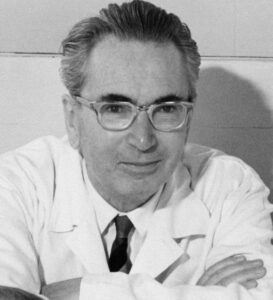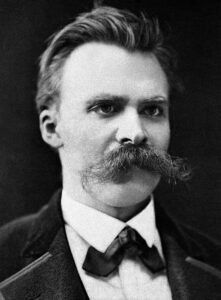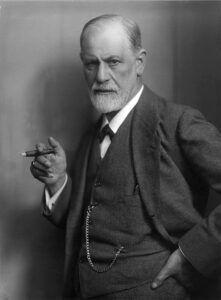Theism and the Meaning of Life
The Meaning of Life
Determining the meaning of life is the most important challenge for every person alive. Everybody has a deep sense that their life must have some purpose, meaning, and belonging. The early Greek philosophers felt people were “telic” creatures. The word “telic” derives from the Greek word “telos” or purpose. Everybody has a person in life, no matter whether they are poor or rich, famous or forgotten; everybody has a reason for their existence.
Everybody wants to live for something; we all have a yearning for meaningfulness. People know that when they reach the end of their life, they need to feel like they have made a difference and that their life had meaning. We all want to make some contributions to the world to somehow make it a better place.

Viktor Frankl – By Prof. Dr. Franz Vesely, CC BY-SA 3.0 de, Link
Viktor Frankl made a career out of imploring people to determine their ultimate purpose. He wrote one of the most influential books of the twentieth century called Man’s Search for Meaning. Frankl was a prominent Jewish Austrian psychiatrist during the years leading up to World War 2. In 1942, the unthinkable happened as he and his family were arrested and transported to a German Nazi concentration camp. Frankl ultimately survived the horrors of the death camp, although all his relatives perished.
Death Camps, The Meaning of Life, and Viktor Frankl
Frankl would spend years in deep introspection using his skills as a psychiatrist to analyze what of any value might occur from these horrible experiences. He concluded that there was a fundamental difference between those who survived the experience and those who did not, other than mere luck. The difference was that those who survived felt like they had some meaning. Frankl was convinced that people are motivated to understand and act upon our purpose, and that belief will help anybody survive horrific experiences while others perish.
Frankl noted,
Life is not primarily a quest for pleasure, as Freud believed, or a quest for power as Alfred Adler taught, but a quest for meaning in his or her life.

By Friedrich Hartmann – https://s-media-cache-ak0.pinimg.com/originals/04/10/0b/04100baec90c105729b47f33c371476b.jpg, Public Domain, Link
Many modern thinkers take after the nihilistic philosophy of Friedrich Nietzsche and conclude that life ultimately is without meaning. This is particularly true concerning the most recent spate of so-called New Atheists. They feel that in the final analysis, life is without meaning or purpose and that this is the only realistic view that is logical in a godless universe.
The question remains, however, why do people have a yearning for meaning if there is none? Philip Yancy believes that the quest for meaning present in the lives of all people suggests that such a meaning actually exists.
Author Tim Keller made similar observations concerning the quest for meaning in our lives. He noted,
If there is no God, and we are just finite beings, with no intrinsic value, and when we die and go into everlasting nothingness, then why do we yearn for meaning and a sense of permanence? Where does this desire come from?
An evolutionary biologist might suggest the need for meaning is purely a survival instinct; people who have a sense of ultimate purpose to their life will be more productive and less depressed than those saddled with the thought their life ultimately means nothing.
The atheist would also suggest the apparent need for meaning to life as little to do with whether there actually any meaning. A need for a purpose to life does not mean there is actually any purpose.
So which is it? Are we merely the pawns of a meaningless world, a bag of skin holding a biological soup of diverse interacting molecules that determines our fate, or is there an ultimate purpose to life that transcends our own selves?
Put another way, does the belief in God and an ultimate transcendent meaning to life make it more likely you will be fulfilled in life, and is that belief realistic or only hopeful thinking? In short, are your beliefs congruent with reality?
Do you believe in God because you hope your life has meaning, or do you not believe in God because you want to live your life without external constraint?

Freud – By Max Halberstadt – [ Christie’s], Public Domain, Link
Radically Different Perspectives on the Meaning of Life
Christianity and atheism have radically different perspectives on the meaning of life. They have mutually exclusive views which lead to opposite conclusions.
There was a debate between philosopher William Lane Craig and Douglas Jesseph – a professor at North Carolina State University concerning the topic “Does God Exist?” One of the final questions posed by the crowd put their differences into sharp resolution when the student asked, “Can each of you tell us what difference your worldview makes to you in your own personal lives?”
This is a vitally important question because a philosophical viewpoint or worldview has little relevance unless it influences how life is lived. Of course, that does not necessarily mean a worldview leading to a better life is “true” but it is certainly of relevance.
Dr. Craig went first noting how theism influenced his marriage and his life in general for the better. He said,
I came to know joy for the first time. I can’t help but want to share the wonder of Jesus Christ whenever I am welcomed to give reason for the hope within me. I just can’t keep Him to myself.
It was then Professor Jesseph’s turn. He noted that if he had to share the hope that he had within, it would be a short conversation.
I’d probably just go home, put on the Grateful Dead, and play chess with my computer.
Several students gasped understanding perhaps for the first time that there is a connection between your worldview and the meaning of your life. Many younger people have never really given consideration to the practical implications of an atheistic worldview. The implications are that there is no grand purpose to life, and that life is ultimately meaningless; when we die, we go into the everlasting nothingness and all our accomplishments will likely be forgotten within a few short years.

Cemetery
Confirmation of the consequences of an atheist worldview comes from John O’Neil who has served as the president of the California School of Professional Psychologist. He noted,
The basic questions we encounter when we look deeply into the shadow are spiritual questions. They concern our place and purpose in the world, the significance of our lives, and our personal connection to whatever force keeps the world humming along. Most of us today have moved away from the religious structures that once supplied answers to these questions, but the questions have not gone away. Our compulsive busyness, our dread of unstructured time, and our reluctance to be along with ourselves are rooted in the uncomfortable sense that our lives lack meaning, that we are disconnected and alone.
We are “disconnected and alone” with a life that lacks real meaning. If there is no God, no transcendent reality, then we are here by chance only. Human life has no real intrinsic value as we are nothing but a product of nature – essentially the same as all other seven billion people who walk the earth.
It seems that as society becomes more and more secular, our collective outlook to the future becomes more gloomy and bleak as there is no intrinsic meaning to life. This might explain why depression is ten times higher today than it was 50 years ago, and why suicide has not surpassed car crashes as the leading cause of death due to injury.
The Theistic Value of Life
Christians hold that life has extreme intrinsic value; God put us here individually to serve a purpose, to have a relationship with Him, and to know and love Him. But we are not to live our lives separate from the throngs of other people around us. We are to love our neighbor as ourselves – even our enemies!
It is the love, kindness, and respect Christians should have for their neighbors that mirrors the Christian’s respect for life. People have intrinsic value; value because they are people and not just for who they are or what they might have done.
Christians believe this life is but a preparation for the life to come. Far from being an “opiate” of the masses as Marx held, Christianity tends to make us better people as we feed the poor and serve the sick. It gives us a framework for living a life of value and keeps us out of trouble.
We know that religious people serve less time in jail, graduate more from school, are less likely to get pregnant before marriage, give more to secular charity, are healthier and wealthier than their atheistic neighbors. In short, Christians are more valuable to society in general because they contribute more to he common good than their atheist neighbors.
Harvard University and Post-Christian America

Harvard University
Most parents would be thrilled to have their son or daughter accepted into Harvard as an undergraduate. It has prestige, a huge endowment fund, and serves as the gateway to some of the best jobs in America.
But what is the price not in terms of dollars (although that price is certainly excessive), but in terms of worldview and its consequences?
Harvard University was founded in 1636 shortly after the Pilgrims stepped off the Mayflower in 1620. One of the central bylaws was,
Let every student be earnestly pressed to consider well that the main end of his life and studies is to know God and Jesus Christ who is eternal life – and therefore to lay Christ in the bottom, as the only foundation of all sound knowledge and learning
Harvard was the spiritual epicenter of religious Massachusetts. Many feel that these beliefs led to the initial greatness of Harvard as a preeminent institution of higher learning.
This has changed.
Jesus has been expelled from Harvard. In February of 1993, American Christian evangelist Billy Graham had a lengthy discussion with Harvard’s president Derek Bok. He asked Bok one question while leaving, “What is the number one struggle the students at Harvard have to contend with?” Bok gave the quick response, “Living with emptiness.”
In 2006, the cover story of Harvard’s newspaper, The Crimson, revealed the open secret concerning the Harvard student body. The newspaper revealed that 80 percent of the student body had experienced depression at least once during the prior school year, and that nearly half of the student body were depressed enough to interfere with functioning. Ten percent had strongly considered committing suicide. Suicide may be more prevalent at Harvard – and other universities – than is commonly thought.
Let that sink in – ten percent of the student body at Harvard had seriously considered committing suicide.
Albert Camus, the Nobel Prize-winning novelist wrote,
There is but one truly philosophical problem, and that is suicide. Judging whether life is worth living amounts to answering the fundamental question of philosophy.
Camus indicated he knows of many people who committed suicide after coming to the conclusion that life was not worth living.
There is a direct correlation between the godlessness of society and the rate of suicide. Thomas Masaryk was the first president of Czechoslovakia after WW1, and wrote a book titled Suicide and the Meaning of Civilization. The thesis of the book was that the most godless a society becomes, the higher the rate of suicide in that society. The rate of suicide in the Middle Ages was minimal, but by the end of the nineteenth century, suicide had become one of the leading causes of mortality.
‘Today, suicide has surpassed car accidents as the leading cause of death by injury. The vast majority of these deaths occurred among highly principled, well-educated people without religious faith.
To acquire meaning in life, it seems necessary to answer life’s significant questions a certain way. These questions concern our place in the world, and the ultimate purpose of this life. Much of the population of Western Europe and America have moved away from their religious foundations toward an atheist worldview.
These questions will not simply disappear but stare us in the face particularly as we get toward the end of life. It is important for every person to have meaning that will last beyond their lifetime, and to have an ultimate purpose that is important – truly important.
Suicide and Christianity
The Wall Street Journal wrote an interesting article concerning the relationship between suicide and religious faith. This is important as the rate of suicide in America has been climbing over the past twenty years despite the development of newer methods to treat suicide and better anti-depression medication. One approach to the treatment of depression concerns the encouragement of religious belief.
An article published in JAMA Psychiatry examined the connection between religious attendance and suicide. They found that attendance at a religious service at least once a week was five times less likely to commit suicide than those who did not.
This was a large study evaluating 90,000 women from 1996 to 2010 and is consistent with a later Pew study. But what is the reason for this correlation? Is it only because of community belonging that depression is reduced, or is there something more profound at work here? This turns out to be a very important question because 45,000 Americans take their own lives each year while 25 times this number attempt to do so.
People today are living in an increasingly secular culture with the marginalization of religious belief at a time where such belief may be life-saving. Multiple organizations are searching for a means for reducing suicide, and their data is published in the Suicide Prevention Lifeline and the American Foundation for Suicide Prevention. Attending religious services is not even listed among the resources available for suicide prevention.
This is a shame as newer research establishes a beneficial effect of religious belief and church attendance upon suicide rates.
Summary of The Meaning of Life
One of Henry David Thoreau’s most famous quotes is “The mass of men leads lives of quiet desperation.” It is one of the great paradoxes of modern society that even though we can travel anywhere in the world, few people even know the names of their neighbors. We may live in crowded cities but don’t know our neighbors.
We are made in the image of God – not in the image of animals. We are hard-wired for a relationship with God, and without that relationship, we have a vacuum in our lives that nothing else will fulfill.




